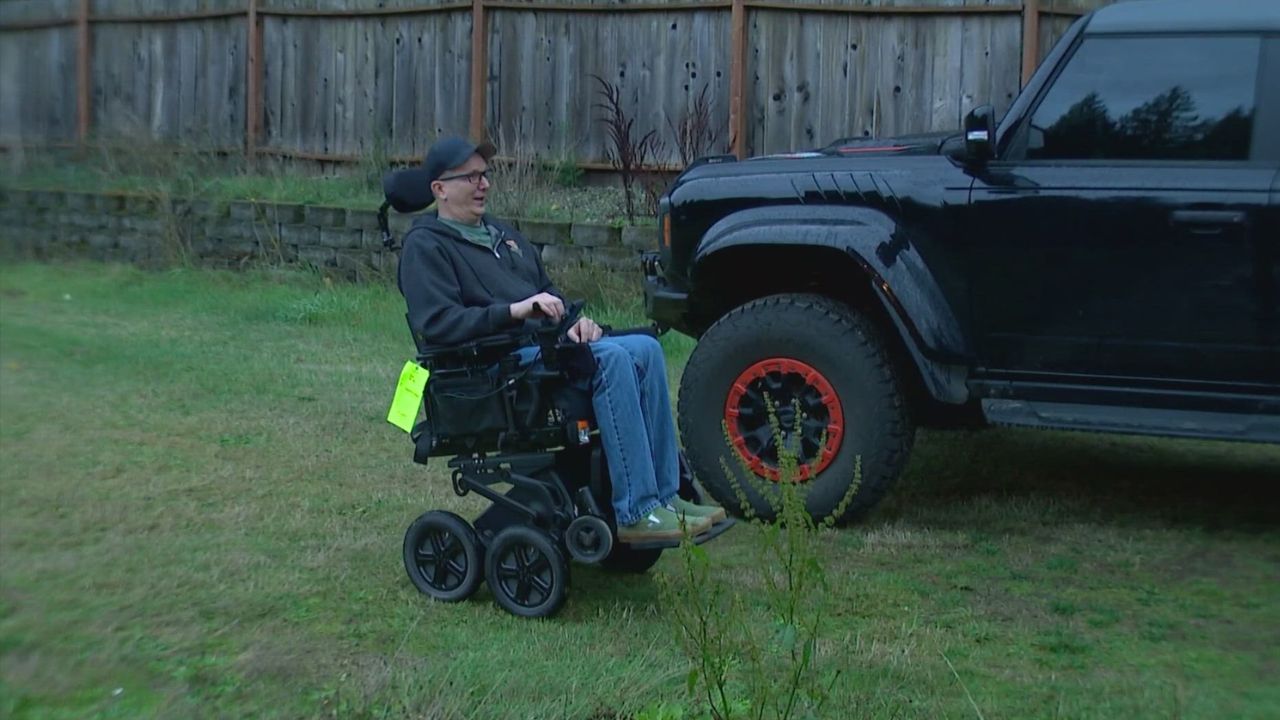Seattle, WA – A disabled veteran from Pierce County claims that Alaska Airlines violated federal law by refusing to allow him to check his battery-powered wheelchair on a flight from Las Vegas back to Seattle. The denial occurred despite the veteran being permitted to check the wheelchair on the outbound flight under similar conditions, sparking concerns about the airline’s compliance with the Air Carrier Access Act (ACAA).
Stan Smith told that the key issue stemmed from the loss of the manufacturer’s data card, which contains essential information about the wheelchair’s lithium-ion batteries. The lost card led to airline staff in Las Vegas denying him the right to check his wheelchair, leaving Smith stranded and forced to purchase new tickets with another airline.
The Incident: Conflicting Treatment on Outbound and Return Flights
Smith was allowed to check his powered wheelchair on a flight from Seattle-Tacoma International Airport to Las Vegas after airline staff properly tagged the chair to confirm safety compliance. However, on the return trip from Harry Reid International Airport, Alaska Airlines staff refused to check it due to the missing data card, which was reportedly lost or damaged during baggage handling.
“They took the tag that had been filled out in Seattle and started bad-mouthing employees in Seattle,” said Smith. “I just [needed] a solution to get home. They said it was OK on the flight down.”
Denial of Accommodation and Subsequent Struggles
Despite Smith’s efforts to provide the data card information via a text message from the manufacturer and offering to have the manufacturer speak directly with airline staff, Alaska Airlines declined to reconsider. The airline filled out a form declining to board the wheelchair, leaving Smith and his wife distressed and without resources.
- Smith and his wife ended up purchasing new tickets through Delta Air Lines costing more than $1,800.
- Delta allowed the wheelchair check after a simple battery safety confirmation.
- Smith highlighted the simplicity of Delta’s compliance versus Alaska Airlines’ refusal.
“All airlines should be that simple and in compliance with the law,” Smith said. “If I didn’t have that, I’d [still] be in Vegas a month later.”
Read Also: Louisiana Bartender’s Pimple Turns into Dangerous ‘Triangle of Death’ Infection – Urgent Warning
Claims of Legal Violations and Requests for Compensation
Smith, who has expertise in the Americans with Disabilities Act (ADA) and the Air Carrier Access Act (ACAA) through his previous work with Tacoma and VA Hospitals, believes Alaska Airlines’ actions violated federal disability rights laws that guarantee accommodations for disabled travelers.
“If somebody that has the knowledge and the background I do with the ADA can’t get through the system without, for lack of a better term, getting dumped on the sidewalk in front of an airport, what are they doing to people that don’t have my knowledge and background in how things are supposed to work?” Smith questioned.
Despite contacting Alaska Airlines for a refund of the unused tickets and compensation for the Delta tickets, Smith was refused both. When he asked to speak to a supervisor, he was told the person he was talking to was the highest authority available who would not offer compensation.
Alaska Airlines’ Response and Broader Context
While Alaska Airlines did not immediately respond to KING 5’s requests for comment on Smith’s case, the airline has previously stated it is committed to ensuring a “safe, respectful, and inclusive experience for all guests” and takes any claims of discrimination seriously. This incident followed another complaint where a hearing-impaired passenger alleged humiliation by an Alaska Airlines flight attendant over hearing aids usage.
For more details, see the full story on KING 5 News.
Key Takeaways for Disabled Travelers and Airlines
- Always keep manufacturer data cards and documentation for battery-powered mobility devices easily accessible.
- Advocate for understanding and compliance with federal disability laws like the ADA and ACAA.
- Airlines must ensure consistent policies and training to handle disability accommodations respectfully and lawfully.
What Happens Next?
Smith’s experience raises important questions about accessibility and legal compliance in air travel. Disabled passengers, advocates, and airlines alike await clearer guidelines and better enforcement to prevent similar situations.
What do you think about this story? Share your thoughts in the comments below!


 by
by 

